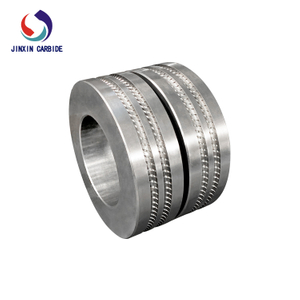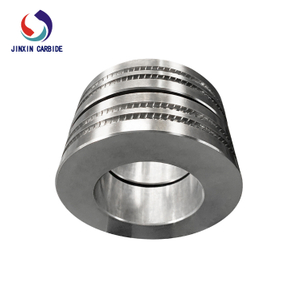When it comes to precision manufacturing, the tools and components you use can make a significant impact on the quality of your final product, as well as on production efficiency and costs. One such essential component is the carbide core pin. These pins are critical for creating precise molds, cavities, and intricate features in a wide range of industries, including automotive, aerospace, electronics, and medical device manufacturing. However, with the variety of carbide core pins available on the market, choosing the right one for your specific application can be a daunting task.
In this guide, we will explore the factors you should consider when selecting a carbide core pin, how to match the pin’s properties to your specific needs, and the benefits of making the right choice. By the end of this article, you’ll have a clear understanding of how to select the ideal carbide core pin for your application, helping you to optimize your manufacturing processes, reduce downtime, and improve product quality.
What Is a Carbide Core Pin?
Before diving into the selection process, it’s essential to understand what a carbide core pin is and how it functions. A carbide core pin is a tool made from cemented carbide, a material known for its exceptional hardness, wear resistance, and heat tolerance. These pins are typically used in molding and casting processes, where they are inserted into molds to create internal features like holes, cavities, or other intricate shapes in parts that are being formed.
Cemented carbide (also known as tungsten carbide) is an alloy composed of tungsten carbide particles bound together by a metal binder, usually cobalt. This material provides a unique combination of hardness, strength, and durability, which makes carbide core pins highly effective in industries where precision and resistance to wear are crucial.
Factors to Consider When Choosing a Carbide Core Pin
Choosing the right carbide core pin involves considering several key factors. These factors will depend on the specific demands of your application, such as the type of material being molded, the temperature conditions, and the required precision. Here are the primary factors to consider:
1. Material Compatibility
The material you are molding plays a significant role in determining the type of carbide core pin you should use. Carbide core pins are commonly used in molding and casting metals, plastics, and other materials, each of which has different properties and may require specific types of carbide.
Metal Molding: If you are working with metals like aluminum, steel, or other alloys, you will need carbide core pins that can withstand the high heat and pressure associated with metal casting and die-casting. Carbide core pins with higher heat resistance are better suited for metalworking applications.
Plastic Molding: When molding plastics, the temperature is generally lower than metal casting, but the need for precision is often higher. In these cases, a carbide core pin with good wear resistance and dimensional stability is essential.
For example, tungsten carbide is known for its superior wear resistance and is ideal for high-stress applications like metal die-casting, while cobalt-bonded carbide offers more flexibility and is better suited for plastic molding.
2. Hardness and Wear Resistance
One of the main reasons carbide core pins are used is their incredible hardness and wear resistance. These properties make them ideal for creating precise molds in high-wear environments, where traditional materials like steel may wear down too quickly.
The hardness of a carbide core pin determines its ability to resist deformation under high pressure, while the wear resistance ensures that it can maintain its shape and sharpness over extended use. When selecting a carbide core pin, it’s important to match the hardness of the pin to the type of material being molded and the expected wear conditions.
High Hardness: If your application involves molding abrasive materials (like metal alloys), you will need a pin with higher hardness to prevent the core pin from wearing down too quickly.
Moderate Hardness: For less abrasive materials, you can choose carbide core pins with moderate hardness, as they may offer a good balance of durability and cost.
3. Temperature Resistance
Another important factor when selecting a carbide core pin is its temperature resistance. Different molding and casting processes expose core pins to varying levels of heat, and choosing a pin that can withstand the temperatures involved is critical for ensuring the longevity and performance of the pin.
High-Temperature Applications: If you’re dealing with processes that involve molten metal, such as die-casting or metal injection molding, you will need carbide core pins designed to handle high temperatures without losing their structural integrity. Tungsten carbide is a top choice for these applications due to its exceptional heat resistance.
Low to Moderate-Temperature Applications: For plastic molding or other processes that operate at lower temperatures, you can opt for carbide core pins with slightly lower temperature resistance, but still with strong wear resistance.
4. Pin Geometry and Size
The geometry and size of the carbide core pin are crucial to its functionality. Core pins come in various shapes and sizes, and selecting the right one depends on the specific features you need to create in your molded part.
Standard Core Pins: These pins are typically cylindrical and are used to create simple holes or cavities in molded parts.
Complex Shaped Core Pins: For more intricate designs, carbide core pins can be custom-made with more complex geometries, including pins with grooves, tapered shapes, or even hollow structures. These custom-designed pins are often necessary for applications like precision molding of small electronic components or aerospace parts.
It’s important to consult with your mold designer to ensure that the pin geometry matches the features you require in the final molded product.
5. Surface Finish and Coating
The surface finish and coating of the carbide core pin can also affect its performance in your application. A smooth surface finish ensures that the core pin doesn’t cause any defects or damage to the molded parts, while coatings can enhance the pin’s properties.
Coatings: In some applications, carbide core pins are coated with materials like chrome, nitride, or diamond-like carbon (DLC) to further improve wear resistance, reduce friction, and increase the pin’s lifespan.
Polished Finish: A polished finish is particularly useful in applications where the part being molded needs to have a smooth surface finish without scratches or imperfections.
6. Cost Considerations
Cost is always a critical factor in selecting materials for any manufacturing process. While carbide core pins tend to be more expensive than steel or aluminum alternatives, they offer significant long-term savings due to their durability, wear resistance, and the reduction in downtime. However, it’s important to balance cost with performance, ensuring that the benefits of carbide core pins justify the investment for your specific application.
7. Customization and Design Requirements
Some applications require highly customized carbide core pins to meet specific design needs. For example, in the aerospace or automotive industries, where parts often have complex geometries or strict tolerance requirements, off-the-shelf carbide core pins may not be sufficient.
In these cases, working with a manufacturer or supplier that can provide custom carbide core pins designed specifically for your application is crucial. A custom-designed pin can ensure optimal performance, durability, and precision for your unique requirements.
Conclusion
Choosing the right carbide core pin for your specific application is crucial to achieving the highest level of performance, precision, and durability in your manufacturing processes. By carefully considering factors such as material compatibility, hardness, temperature resistance, pin geometry, surface finish, and cost, you can select the ideal carbide core pin that meets your needs and enhances the efficiency of your production line.
Whether you’re molding high-precision automotive parts, creating intricate electronics components, or manufacturing aerospace components that require extreme durability, carbide core pins offer unmatched advantages in terms of wear resistance, precision, and longevity. By making the right choice, you’ll not only improve the quality of your products but also reduce operational costs and downtime, ultimately boosting the overall efficiency and profitability of your manufacturing operations.
If you’re looking for high-quality carbide core pins tailored to your specific manufacturing needs, Changsha Jingxin Cemented Carbide Co., Ltd. offers a wide range of carbide tools designed for a variety of industries. With their expertise in producing durable and precise carbide components, Changsha Jingxin can help ensure your manufacturing processes run smoothly and efficiently.
Visit their website or contact their team to learn more about their products and how they can support your production needs with high-performance carbide core pins designed to deliver exceptional results.

 +86-18073319589
+86-18073319589 
















